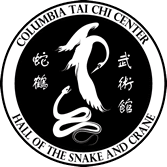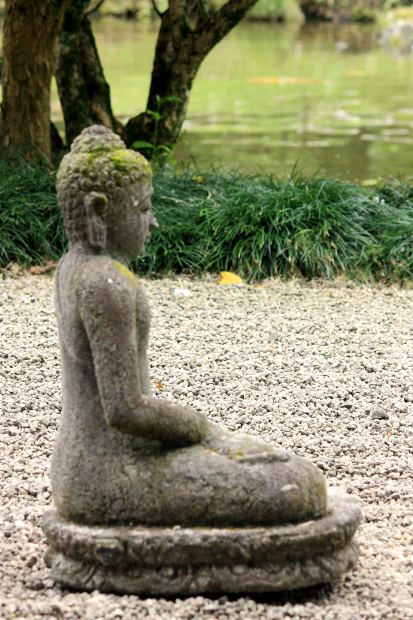Four things I am learning about meditation
By De Anna Beasley
If you have practiced Tai Chi at our school for any length of time, you know that Chan (Zen) meditation is a huge component of the art. What the practice offers is almost too good to be true: stress relief, calm mind, focus, clarity in thought, etc. Those were all qualities I wanted in my life and when the first meditation class was offered, I immediately signed up. However, I was surprised by the difficulty, not only in sitting in Burmese position—because man, that is a new level of hurt!–but in simply being still and mentally quiet. My mind was ridiculously busy and resistant to the exercise. I realized then that meditation will not be a light endeavor for me and I had to approach it the same way I approached my Tai Chi practice. Here is what I’ve learned so far:
You have to be proactive.
It was easy to have the impression that meditation was effortless until I sat down and observed my mind in its near constant frantic state. It was frustrating how busy and unfocused my mind was and it amazed me how unaware I was of this until I attempted to assert enough of a quiet state for the simple task of counting. To realize so starkly the extent to which I had no control over my thinking was discouraging and unsettling.
The academic in me was appalled.
The mind is truly an amazing problem-solving tool. However, Tai Chi and meditation has helped me to appreciate how destructive an undisciplined mind can be and the pitfalls of attaching oneself to its chatter. As Sifu explained in numerous classes, to do its job, the mind has to identify problems, even if that means creating them. In my case, the result is usually negative thinking and anxiety. Since incorporating more meditation in my life, I have become increasingly aware of when my mind becomes agitated and with this awareness, I am learning to stop the negative-thinking feedback loop before it gets out of hand. It also helped me to realize that a good portion of the stress in my life comes from my mind’s negative talk. Building this awareness takes commitment and probably a hint of stubbornness because my mind, at least, is rather persistent in sticking with what it knows best.
There is no timeline or schedule
I have had practices where my mind is pretty quiet and I feel calm and soothed. Other days, I struggle the entire time. My legs fall asleep. I get uncomfortable. I get distracted by my thoughts and daydreaming. From this I’ve learned to take each session as it comes and understand that meditation practice is a lifelong process where lessons are learned and relearned under various circumstances of my life. So I recognized early I needed to abandon any ideas of setting a rigorous deadline for enlightenment. I would only be setting myself up for disappointment at best and missing the point of a meditation practice at worst.
It is challenging and that’s what makes it so rewarding
After practicing self-defense, push hands, weapons and form, I can say that meditation practice is by far the most challenging. But that sense of accomplishment in completing a form or finally learning a push hands pattern is the same when I become increasingly aware and sensitive to my mental state without being carried away by it. I am not perfect at this awareness. After all, old habits die hard but I’ve found that each session offers more insight and understanding through its challenges. I am learning to welcome those challenges as opportunities for growth.
You get better with practice.
What I like about Tai Chi is that it offers the physicality and mental skill building that I can practice for the rest of my life. As Sifu says, a person practicing Tai Chi for ten years is remarkably different from someone who did Tai Chi ten years ago. You can make a similar analogy for meditation. It is not my intention to become a Buddhist nun but I do want to better navigate the stresses of life in a healthy, sustainable manner. If my mindset constitutes a large portion of the negative stress in my life then slowly changing the way I think through a committed practice of meditation will go a long way in helping me live that healthy life.
So those are the four basic concepts I’m learning about meditation so far. Perhaps in ten years I’ll have more to add but I doubt it. The brilliance and challenge of meditation is in its simplicity:
Just do it.
– De Anna Beasley is a postdoctoral research scholar in ecology. She’s studied Tai Chi for six years.


